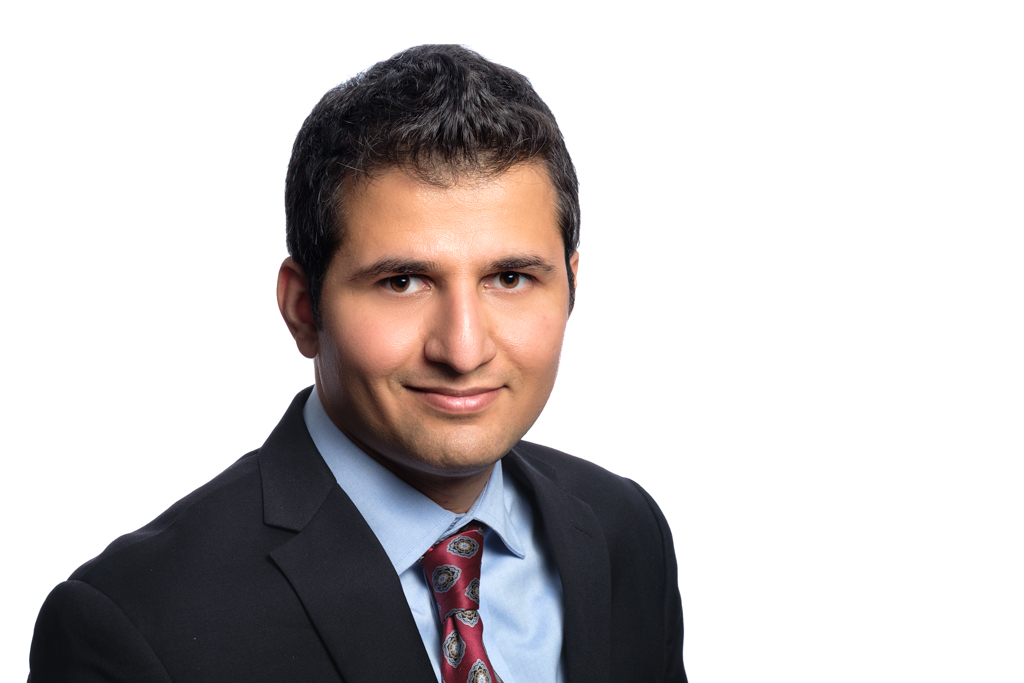
In Shakespeare’s “Hamlet,” Polonius utters the following famous words:
“To thine own self be true.”
In today’s millennial-dominated workplace, that philosophy could benefit both workers and employers, a recent study led by assistant professor of marketing, Mahdi Ebrahimi, concludes.
Ebrahimi, who joined CSUF’s College of Business and Economics five years ago and teaches consumer behavior and global marketing, examined workplace vs. personal life identities, and his research yielded the following key takeaway:
If an employee feels a big disconnect between his or her identity at work compared to when he or she is away from the office, that feeling of inauthenticity could lead to unethical behavior on the job.
Perceived identities
Think, for example, of a lawyer who sees himself as tough and polished in the courtroom but easygoing and playful with his friends and family. That’s an example of having low integration between workplace identity and identity when off the clock.
Conversely, an individual with high identity integration might see herself as a caretaker at both work and home, thus experiencing no conflict in how she takes care of the members of her family to how she nurtures the careers of the people she leads at work.
“We looked at the intersection of perceived identity and ethical behavior in the workplace — that’s the novel aspect of this study,” said Ebrahimi, who co-authored the study with Maryam Kouchaki, associate professor of management and organizations at Northwestern University’s Kellogg School of Management, and Vanessa Patrick, associate dean for research at the Bauer College of Business at the University of Houston.
The concept of people wanting to feel authentic at work — to bring their “whole selves” to the office — has gained momentum in recent years, Kouchaki writes in a Harvard Business Review recap of the study, “Juggling Work and Home Selves: Low Identity Integration Feels Less Authentic and Increases Unethicality.”
One reason, Kouchaki explains, is the large number of millennials in the workforce, which at 35% now represents the greatest proportion of the U.S. workforce of any generation. Millennials are known for their strong focus on consuming and working for brands with values that match their own.
Four studies
Ebrahimi and his research colleagues conducted four studies — three laboratory experiments and a field survey of 800 employees — to reach their findings.
As part of the study, researchers had participants flip a virtual coin on a website they thought was independent. The task involved 10 rounds of coin flips in which they would earn money for each correct prediction.
Participants who felt a big disconnect between their work and personal identities were more likely to cheat in reporting how many coin tosses they predicted correctly than was the high-integration group, Ebrahimi and his colleagues found.
Employers’ role
Results of the study have practical implications for employers, Ebrahimi says.
“Employees feeling inauthentic is actually a problem for companies,” he says.
There are ways, he says, for employers to help employees bring their whole selves to work.
One is giving workers some control to boost their sense of authenticity.
Another is living out your organization’s mission and values — not simply posting them on a wall but putting such values into action.
Promoting transparency about process and policy is another tool employers can use to make their workers feel more authentic.
Studied engineering
Ebrahimi earned a bachelor’s degree in information technology and engineering at Sharif University of Technology in his native Iran, but soon was drawn to the “softer” science of marketing. He won a best dissertation proposal award at Bauer College of Business at the University of Houston where, in 2017, he earned a doctorate in marketing.
Some of his other research has looked at people’s perception of time in the context of marketing and consumerism.
“Everyone has the same amount of time,” Ebrahimi said, “but some people feel crunched for time and others feel they have a lot of time available.”
As for his authentic self, Ebrahimi and his wife are expecting their first child in May, and he loves to play soccer.
Ebrahimi noted that the remote work explosion caused by the COVID-19 pandemic has provided an opportunity for many people to bring their whole selves to work, with clues about their personal life on screen for all Zoom participants to see.
“But remote work also has presented a challenge for some people who want to keep their work and personal lives very segregated,” Ebrahimi said.
There’s power, he said, in integrating work and home identities.
As Ebrahimi’s study puts it: “It is no wonder that individuals aspire towards being, feeling, and coming across as authentic as they navigate their lives.”
Related Articles
JPL engineer credits CSUF in her reach for the stars
CSUF event to feature stories of resiliency in the Black community
Join the club: Discoverfest showcases student life at CSUF
Cal State Fullerton’s photographer captures the human experience through his lens
CSUF revamps recruiting, orientation during pandemic
Related Articles
JPL engineer credits CSUF in her reach for the stars
CSUF event to feature stories of resiliency in the Black community
Join the club: Discoverfest showcases student life at CSUF
Cal State Fullerton’s photographer captures the human experience through his lens
CSUF revamps recruiting, orientation during pandemic
